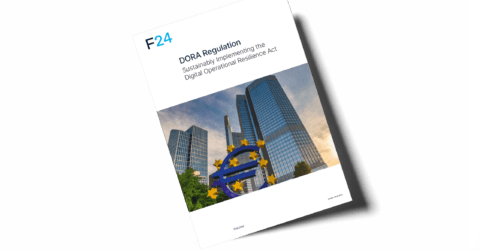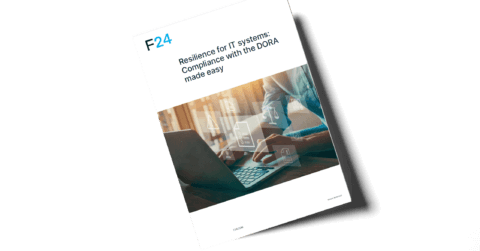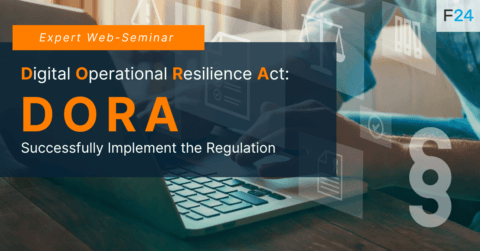Risk Management for Financial Institutions
The financial sector needs to take extra precautions to stay resilient to risk. Learn how you can improvise with smart solutions designed for financial institutions.


Safeguarding Your Critical Infrastructure
The financial sector is considered as critical infrastructure – an essential service on a par with energy supply, IT infrastructure and food production. As such, banks cannot fail, and effective risk management is crucial for continued stability in the economy. Risk managers should have access to a secure, independent crisis management system to support emergency mitigation and business continuity. By cloud-based investing in alerting, messaging and communication software, financial institutions ensure their crisis response is always available and can be accessed remotely, from a variety of end-devices.
More than 5.500 Customers from All Industries
Trust the Services of F24 in Critical Situations.



How do Banks and Financial Institutions Mitigate Business Interruption?
Investing in infrastructure such as panic alarm systems connected to a centralised response centre means a physical threat can be acknowledged immediately. An incident response can easily be triggered by a silent alarm in the trading room or by someone pressing a panic button after seeing a suspicious package in the banking hall. Panic alarms should be easily accessible so anyone can activate one if the need arises, whereas silent alarms need to be discretely placed so they can be triggered without escalating the situation.


Certification and Information Security
In 2010, we became the first company ever worldwide to have our integrated management system for information security (ISMS) and business continuity (BCMS) certified by “The British Standards Institution” (BSI). Since our clients have the highest expectations for security and availability, we deliver nothing less. The BSI certification confirms that F24 operates an integrated management system for critical business processes in accordance with ISO/IEC 27001:2022 and ISO 22301:2019 international standards. We are also GDPR compliant to ensure utmost data protection.
Related Resources
Related Solutions

Product Finder
Find solutions that can suit your needs in case of emergency.

F24 SaaS-Solutions
Check out our range of smart solutions.

Business Continuity Management
Learn how to digital solutions can support to ensure business continuity.

Benefit from F24’s Smart Solutions for Finance
Talk to F24’s experts about your preparedness and crisis management plans. We are the trusted service provider for many banks and financial institutions and have experience in integrating panic alarm systems with threat monitoring and alerting software. Get in touch today!
Learn How Our Smart Solutions can Help You!
Fill in you personal Data
Why Is Risk Management Important for Financial Institutions?
Banking is based on trust. And that trust – built up over many decades, even centuries in some cases – can be lost in just a few hours. In such a highly regulated industry, a financial institution’s response to a crisis incident or security breach could be the decisive factor in whether they can continue in commercial banking.
Which Risks Are Commonly Faced by the Finance Sector?
Like all industries, corporations in the finance sector should undertake regular risk assessments and develop response plans to deal with disruption caused by a number of external and internal threats, from fires and natural disasters to IT failures or cyber-attacks. However, due to their role as key infrastructure within our economies, banks and financial institutions are also at particular risk of bomb threats and terrorist attacks.
Risk management involves planning ahead for any scenario. Once an alert has been received via a silent alarm or panic button, pre-defined intruder and business continuity plans can be implemented to mitigate the emergency. Safety of staff and visitors on site must be the top priority, so evacuation plans must be practiced regularly.
Effectively deploy alarm systems in commercial banks
If a burglar or terrorist makes threats against a financial institution, the situation can escalate exponentially. Thanks to an alarm system that features silent alarms, risk managers can be alerted discreetly immediately – and disaster recovery and business continuity plans can be implemented discreetly within minutes.


